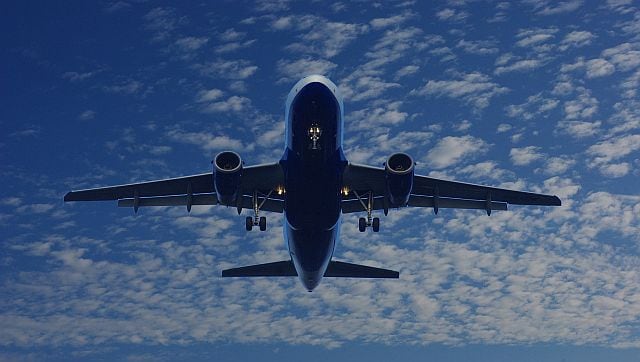Airlines often consider a drunk pilot flying a criminal offence. But a fresh proposed legislation in India could also take action against pilots who use perfume. Civil aviation regulator Directorate General of Civil Aviation (DGCA) has proposed a draft that may bar pilots and crew from using perfumes during the breathalyser test. The (DGCA has come up with the draft since perfumes generally have a high alcohol content and can affect the breathalyser test. “No crew member shall consume any medicine/formulation or use any substance such as mouthwash/tooth gel/perfume or any product containing alcohol which may result in a positive breathalyser test. Any crew member who is undergoing such medication shall consult the company doctor before undertaking a flying assignment,” the draft, accessed by news agency ANI, read. “This is only a draft CAR (Civil Aviation Requirements) put in the public domain for stakeholder comments,” the DGCA chief said. Perfume’s impact on breathalyser results According to Terri Daniel, a criminal defence lawyer in McKinney, perfume can affect breathalyser results. “If you’ve used a product that contains alcohol, the breathalyser might detect the alcohol concentration and report a false positive,” Daniel’s website says. “Products that contain alcohol include toothpaste, aftershave, hand sanitiser, bleach, mouthwash, perfume and cologne. Even spraying bug repellent on yourself can produce a false positive,” it adds, as reported by USA Today. [caption id=“attachment_13195842” align=“alignnone” width=“640”] 41 Indian pilots and 116 cabin crew members had their licences temporarily suspended after testing positive for alcohol last year. Image used for representational purpose/Pixabay[/caption] The proposed ban seeks to reduce the risk of false positive breathalyser results while also ensuring the highest level of aviation safety. By prohibiting the use of alcohol-containing goods, the DGCA hopes to avoid any compromise to the sobriety requirements required of pilots and crew members. The DGCA’s official air security standards were ratified in August 2015. The planned addition is open for public feedback until 5 October. India’s strict alcohol rules India has extremely tight alcohol regulations for airline crew. According to the Civil Aviation Requirements rules, all flight crew and cabin crew members flying scheduled/charter/non-scheduled flights originating in India would be subjected to a pre-flight breathalyser test at the first departure airport during a flight duty period. Even a trace of alcohol is deemed a positive result and can result in a three-month licence suspension. Furthermore, the guidelines say that all operators must ensure that the breathalyser test is recorded on camera and that the recordings are kept for six months. [caption id=“attachment_13195862” align=“alignnone” width=“640”]
 The DGCA’s official air security standards were ratified in August 2015. The planned addition is open for public feedback until 5 October. Image used for representational purpose/Pixabay[/caption] The DGCA also requires a 12-hour period between operating an aircraft and consuming an alcoholic beverage. Pilots who fail the alcohol test for the first time are prevented from flying for three months, second-time offenders are barred for three years, and a pilot’s licence is permanently revoked if the test is failed a third time. According to the DGCA, some common products may cause a false-positive result. As a result, the rule modification may narrow a legal loophole exploited by crew members to avoid licence suspension. Intoxication issue in aviation Pilot drunkenness has occasionally been a problem in the aviation industry around the world. Forty-one Indian pilots and 116 cabin crew members had their licences temporarily suspended after testing positive for alcohol last year, according to an aviation website that tracks test results. In 2018, Katsutoshi Jitsukawa, a Japan Airlines pilot, was sentenced to 10 months in prison after a breath test done shortly after takeoff revealed that his blood alcohol level was nine times the legal limit. In the United States, a Delta pilot named Gabriel Lyle Schroeder was pulled off a fully boarded jet before to takeoff after being suspected of being drunk, reports CNN. With inputs from PTI
The DGCA’s official air security standards were ratified in August 2015. The planned addition is open for public feedback until 5 October. Image used for representational purpose/Pixabay[/caption] The DGCA also requires a 12-hour period between operating an aircraft and consuming an alcoholic beverage. Pilots who fail the alcohol test for the first time are prevented from flying for three months, second-time offenders are barred for three years, and a pilot’s licence is permanently revoked if the test is failed a third time. According to the DGCA, some common products may cause a false-positive result. As a result, the rule modification may narrow a legal loophole exploited by crew members to avoid licence suspension. Intoxication issue in aviation Pilot drunkenness has occasionally been a problem in the aviation industry around the world. Forty-one Indian pilots and 116 cabin crew members had their licences temporarily suspended after testing positive for alcohol last year, according to an aviation website that tracks test results. In 2018, Katsutoshi Jitsukawa, a Japan Airlines pilot, was sentenced to 10 months in prison after a breath test done shortly after takeoff revealed that his blood alcohol level was nine times the legal limit. In the United States, a Delta pilot named Gabriel Lyle Schroeder was pulled off a fully boarded jet before to takeoff after being suspected of being drunk, reports CNN. With inputs from PTI
India’s civil aviation regulator, the DGCA, has proposed a draft that bars pilots and crew from using perfumes, mouthwash and more during the breathalyser test. This is because these items generally have a high alcohol content and can affect the results of the test
Advertisement
End of Article


)

)
)
)
)
)
)
)
)



